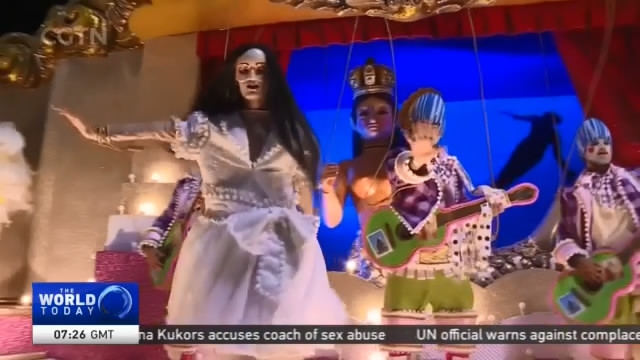
16:47, 09-Feb-2018
Carnival Cuts: Budget cuts loom over Brazil's biggest celebration

Brazil's famous carnival takes place on the 11th and 12th of February. Rio de Janeiro's top samba schools say they're ready. But they've been under stress to prepare this year due to daunting budget cuts imposed by the city's mayor. Lucrecia Franco, in Rio, reports.
Rio de Janeiro's elite Samba Schools are working around the clock as the city's famous Carnival parade draws near. This year, however, they are working extra hard to trim costs. This - as city funding for the extravaganza - set at more than seven million dollars last year -- was slashed by half. Samba school officials like Jorge Silveira say the cuts make no sense - when you consider the massive return on investment that benefits the city.
JORGE SILVEIRA, ARTISTIC DIRECTOR SAO CLEMENTE SAMBA SCHOOL "We have official data that last year's carnival brought in around one billion dollars, money that serves the city."
Last June, Rio's Major, Marcelo Crivella, a former evangelical bishop, said money was tight - and he needed to shift spending to schools.
MARCELO CRIVELLA, MAYOR RIO DE JANEIRO "Anyone knows that in a crisis you have to prioritize and there is no greater priority than our children and our kindergartens."
Many of the Samba Schools suspect Crivella's true motivation lies in his religious opposition to Carnival's flamboyance - a charge the mayor's office denies. The schools, meanwhile, are struggling to make the most with what they have.
LUCRECIA FRANCO RIO DE JANEIRO "Here at the City of Samba, a huge complex of warehouses where the top Samba schools make their costumes and floats, the pressure is on to deliver the best possible Carnival."
JORGE SILVEIRA, ARTISTIC DIRECTOR SAO CLEMENTE SAMBA SCHOOL "Samba schools have been forced to hire fewer workers and are facing difficulties to pay suppliers."
One of Rio's most popular Samba Schools, Mangueira, chose a theme for this year's carnival intended to send a clear message to the mayor. It is called "With or without money, I enjoy Carnival". Lucrecia Franco, CGTN, Rio de Janeiro.

SITEMAP
Copyright © 2018 CGTN. Beijing ICP prepared NO.16065310-3
Copyright © 2018 CGTN. Beijing ICP prepared NO.16065310-3